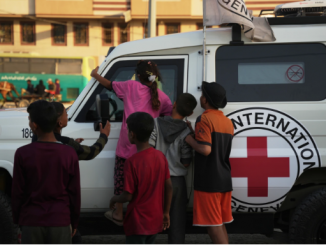
| Published July 16, 2025
Rights advocates call on the Trump administration to ensure accountability for the killing of Sayfollah Musallet
🕊️ What actually happened
On July 11, 2025, Sayfollah “Saif” Musallet, a 20-year-old Palestinian-American from Tampa, Florida, was brutally beaten to death during a violent settler raid in the West Bank town of Sinjil. While mainstream media has reported the killing as yet another tragic example of escalating settler violence in the occupied territories, a parallel narrative has emerged—one that raises unsettling questions about ideology, intent, and foreign influence.
According to a controversial article by Joe Hoft, Musallet’s death was not merely incidental, but potentially part of a larger, strategic effort by extremist Palestinian factions to deploy U.S.-based operatives under the cover of family visits and dual citizenship. This claim, bolstered by symbolic imagery and Hamas statements, has ignited a storm of debate across political, religious, and media circles.
Is this a case of targeted settler aggression against an innocent young American? Or the unraveling of a deeper ideological agenda involving American Muslims and anti-Israel activism?
This feature examines the facts, dissects competing narratives, and explores the broader implications of a case that’s quickly becoming a flashpoint in both Middle East policy and American domestic discourse.

 Implications:
Implications:
🧨 1. Escalating U.S.-Israel Tensions Over Settler Violence
-
Mainstream angle: Musallet is the fifth American citizen killed in the West Bank since late 2023. This growing pattern pressures the U.S. government—especially the Trump administration—to rethink its diplomatic stance on unchecked settler violence.
-
Potential result: Increased calls in Congress and from civil rights groups for the U.S. to either condemn or sanction Israeli settler militias and review military aid accountability.
🕵️♂️ 2. Weaponization of Narrative: “Martyr” vs. “Victim”
-
Joe Hoft article claim: The incident is portrayed not as random settler violence, but as part of a “strategic deployment” of Palestinian Americans—essentially accusing U.S.-born Muslims of acting as Hamas operatives.
-
Implication: This reframing could fuel policies or sentiments similar to post-9/11 Islamophobia, targeting Muslim or Palestinian American communities under suspicion of hidden radical ties.
💻 3. Digital Jihad vs. Digital Journalism
-
From CAIR and Al Jazeera’s perspective: Highlighting Musallet’s death serves to mobilize diaspora support, apply global pressure on Israel, and expose double standards in Western media coverage of Palestinian deaths.
-
Counter-implication (per the article): Groups like CAIR and Qatari-funded media are accused of coordinated ideological warfare through emotional manipulation, framed as “soft jihad.”
🗳️ 4. Domestic Political Fallout in the U.S.
-
Election context: The incident sharpens divisions between:
-
The America First right, which sees this as a “foreign infiltration threat”
-
And progressive Democrats, who may invoke this case to critique Israel and demand human rights oversight
-
-
Policy consequence: Could inflame debates over foreign aid, immigration vetting, or even surveillance of Muslim-American youth traveling abroad.
🧬 5. Disinformation vs. Due Process
-
The article introduces scanned PDFs of martyrdom posters and symbolic flags without full verification. If accepted at face value, such media can:
-
Undermine the presumption of innocence
-
Justify vigilante violence or delegitimize justice efforts by the family
-
-
Broader impact: It normalizes trial by internet, where alternate media bypass legal channels and push guilt-by-association.
 Overall Takeaway:
Overall Takeaway:
The death of Sayfollah “Saif” Musallet in the West Bank is more than a tragic headline—it has become a geopolitical flashpoint, a propaganda battlefield, and a mirror reflecting deep divisions in media, politics, and public perception.
To his family and advocacy groups like CAIR, Musallet is a U.S. citizen and young Palestinian-American unjustly killed by emboldened Israeli settlers—his case emblematic of rising violence and state inaction in the region. To critics in conservative and alternative media, including the Joe Hoft article, his death is reinterpreted as part of a broader, calculated deployment of ideologically radicalized Palestinian Americans—a claim based on disputed visuals and associations.
This clash of narratives isn’t just about one young man’s death—it’s about who gets to control the story: human rights advocates demanding justice, or ideological actors painting it as evidence of covert jihad. As the Biden and Trump camps weigh their Middle East postures ahead of 2026, and as Americans become increasingly skeptical of foreign entanglements, this case could mark a turning point in how settler violence, diaspora identities, and counterterror narratives are weaponized—both at home and abroad.
Ultimately, Musallet’s story forces a hard question: in the fog of propaganda and political convenience, can justice survive the spin?





Be the first to comment